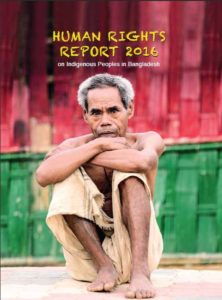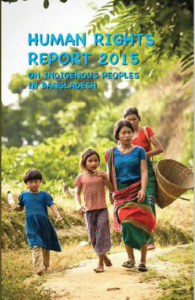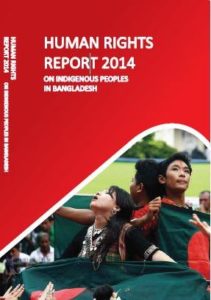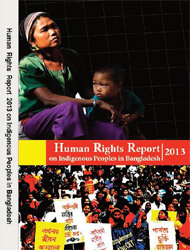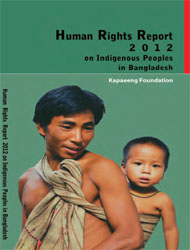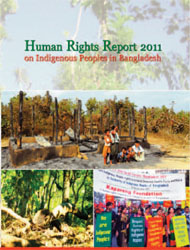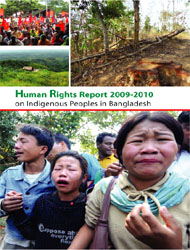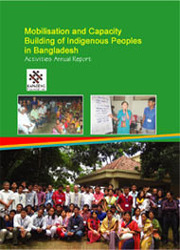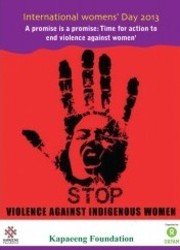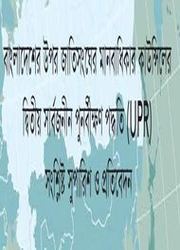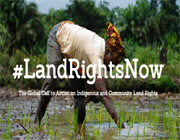21 families of indigenous Chak community left their village following harassment of land grabbers in Naikhyongchari
More five villages under threat to eviction
Indigenous villagers of Padujhiri Chak Para of Alikkhying mouza under Baishari union of Naikhyongchari upazila in Bandarban district abandoned their village following disturbances, harassments and threats of outsider land grabbers. A total of 21 families belong to indigenous Chak community were compelled to leave their village. Most of the evicted indigenous Chak families are Jum cultivators (traditional shifting cultivator).
It is reported that prior to ‘Sangrai’ festival, a traditional national festival of indigenous Chak community, on 9-10 April 2013, the Chak families left their village as influential land grabbers including rubber companies, different commercial companies and fundamentalist militant groups have been inciting hired miscreants and Bengali labourers to conduct theft, robbery and intimidation on indigenous villagers long time with the intention to evict them from their village and occupy their ancestral land and homesteads. Most of the evicted indigenous Chak families took shelter at premises of Baishari Upar Chak Para and other families at Baishari Headman Para under Baishari union.
It is learnt that the miscreants often beat indigenous Chak villagers and seize their valuables while the villagers come from and go to the market. Even miscreants commit eve teasing and sexual harassment on indigenous women and girls at elsewhere they catch them. The miscreants also frequently destroy Jum farm and orchard of indigenous Chak villagers to disturbance them. Due to unendurable harassment of land grabbers, the Chak villagers abandoned their village prior to start their Sangrai festival.
It is also learnt that earlier five years ago, the indigenous villagers of another village named Longadu Chak Para under Baishari union fled from their village following unbearable harassment of outsider Bengali land grabbers. Another 13 poor indigenous Mro families from Amtali Para village of Fasiakhali union under Lama upazila in Bandarban district were forced to evacuate the village in 2012 due to the alleged persecution of the land-grabbers.
Apart from three villages mentioned-above from which indigenous villagers were already evicted, another more five villages under Baishari union in Naikhyongchari upazila in which a total of 80 families live are facing threat to eviction. Of them, 15 families of Baishari Tripura Para, 10 families of Toijhiri Chak Para, 15 families of Kamichara Chak Para, 15 families of Paichang Tripura Para and 25 families of Krokhyong Chak Para have face threat to eviction following land grabbing and harassment by outsider Bengali land grabbers. At any moment, 15 families of Baishari Tripura Para have to leave their village, as miscreants of land grabbers have continuously harassing them with the aim to uproot them from their village and to occupy their ancestral land and homestead.
It is worth mentioning that different companies and outsider Bengali businessmen made rubber plantation on hundreds acres of land. In some cases, they planted rubber on the land belonging to indigenous villagers. Besides, more than 11 business companies including Destiny Group occupied thousands acres of lands recorded and owned by permanent residents of CHT including indigenous Jumma people. The business companies include Mostafa Group, Laden Group, Shahamin Group, S Alam Group, PHP Group, Meridian Group, Exim Group, Babul Group, Agme Group etc. These business companies continue to occupy lands in order to extend its business and area. They occupied hundreds acres of land just by hanging signboard on the land and threatened the indigenous villagers and permanent Bengali residents to leave the area. In some cases, hired miscreants of land grabbers attacked the villagers. However, local administration has been playing passive role which encourages the outsiders to occupy more land freely.
Name of head of the families uprooted from Padujhiri Chak Para:
1. Chijari Chak, s/o late Athai Chak;
2. Athui Chak, s/o late Athai Chak;
3. Chala Khai Chak, s/o late Athai Chak;
4. Chala Khai Chak, s/o Sore Aung Chak;
5. Hlagya Aung Chak, s/o late Ching Shwe Chak;
6. Aung Ching Chak, s/o Hlagya Aung Chak;
7. Shwe Mong Ching Chak, s/o Hlagya Aung Chak;
8. Kyakya Chak, s/o Hlagya Aung Chak;
9. Chathau Chak, s/o Chijari Chak;
10. Hla Mong Ching Chak, s/o Hlagya Aung Chak;
11. Kya Mong Chak, s/o Athowai Chak;
12. Uchathowai Chak, s/o Kya Mong Chak;
13. Uching Chak, s/o late Prue Cha Thowai Chak;
14. Kyachahla Chak, s/o Uching Chak;
15. Aung Cha Nue Chak, s/o late Prue Cha Thowai Chak;
16. Aung Chagya Chak, s/o late Thoihla Khai Chak;
17. Kya Ching Mong Chak, s/o late Thoihla Khai Chak;
18. Kyahla Ching Chak, s/o late Thoihla Khai Chak;
19. Agya Chak, s/o late Hla Chowai Jai Chak;
20. Mongowai Chak, s/o late Hla Chowai Jai Chak;
21. Athowai Cha, s/o late Hla Chowai Jai Chak.
Name of head of the families uprooted from Longadu Chak Para:
1. Chakra Aung Chak, s/o late Rethowai Chak;
2. Thowai Ching Chak, s/o late Jing Thowai Chak;
3. Uva Thowai Chak, s/o late Mambau Chak;
4. Chwejaiu Chak, s/o late Mambau Chak;
5. Lamra Aung Chak, s/o late Ugyajai Chak;
6. Mong Shwe Thowai Chak, s/o Thowai Ching Chak;
7. Aung Chau Chak, s/o Thowai Ching Chak;
8. Mamba Aung Chak, s/o Mongcha Khai Chak;
9. Chaihla Mong Chak, s/o late Mambau Chak;
10. Chaihla Thowai Chak, s/o Mambau Chak.



